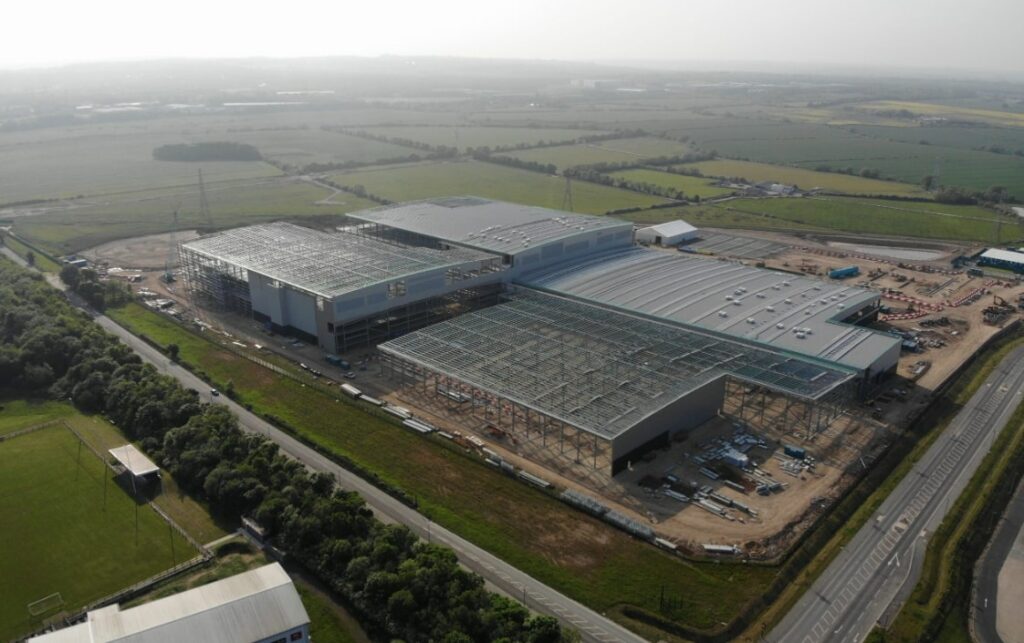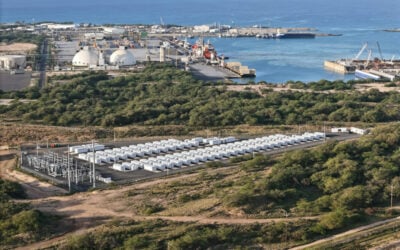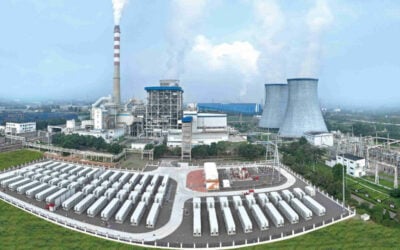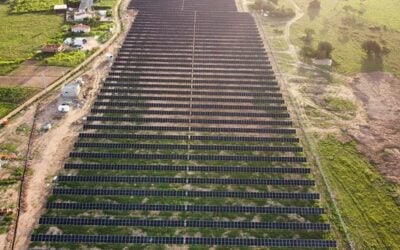
The UK government has published its ‘Battery Strategy’, setting out measures to facilitate the growth of a domestic battery industry to support the EV and energy storage system (ESS) sectors.
The release yesterday (26 November) comes at a time when the EU and the US press ahead with plans to support their own battery industries. Demand for batteries, mainly lithium-ion, is booming globally with the electrification of society and all three regions want to reduce their reliance on China and wider East Asia, which dominate production today.
Enjoy 12 months of exclusive analysis
- Regular insight and analysis of the industry’s biggest developments
- In-depth interviews with the industry’s leading figures
- Annual digital subscription to the PV Tech Power journal
- Discounts on Solar Media’s portfolio of events, in-person and virtual
Or continue reading this article for free
The UK government therefore aims for the country to “have a globally competitive battery supply chain that supports economic prosperity and the net zero transition”, it said in its UK Battery Strategy paper though didn’t give any specific targets.
The meat of the document is 15 measures or ‘policy options’ to deliver on this aim, detailed further down.
Context: UK’s battery industry today
The country has lagged behind Europe and the US for announced projects, with its only homegrown lithium-ion gigafactory company Britishvolt going into administration in early 2023 after failing to scale up, and politicians last week calling for more to be done, as reported by our sister site Current.
The US is providing generous subsidies for domestic battery production, essentially reducing the cost of batteries made there by 30%, while the EU has put in years of policy and funding work to get its sector off the ground (although it may also be under threat from the US’ too).
The UK’s only operational giga-scale lithium-ion battery manufacturing facility – or gigafactory – is a 2GWh plant in Sunderland by AESC, with plans to expand UK manufacturing capacity to 40GWh, while Indian conglomerate Tata has announced a 40GWh factory in Somerset. Both will mainly sell to EV plants operated by affiliates – AESC’s to Nissan, one of its founding companies, and Tata’s to Jaguar Land Rover with which it shares a parent company.
Lithium-ion gigafactories in the UK should find no shortage of local buyers, if they can be priced competitively. The UK’s grid-scale battery storage market is among the most active in the world while its EV manufacturing industry is also relatively strong.
15 measures to support the sector
The most notable is over £2 billion (US$2.5 billion) of new capital and R&D funding for five years to 2030 for EVs, batteries and their supply chains. It also wishes to: ‘Provide sustained, consistent, and targeted support for large-scale, long-term research and innovation activities…’ across the battery supply chain.
It will also provide £61 million specifically in battery R&D through three channels: the UK Battery Industrialisation Centre, the Advanced Materials Battery Industrialisation Centre, and 20 competition winners developing technologies across the battery value chain.
The measures also include: ‘new financial mechanisms to support start-ups’, ‘expand market access for the trade of critical minerals’, ‘create an environment that is welcoming to foreign investment’ and ‘influence and adopt international standards for reuse, repurposing, and recycling’.
Battery manufacturing is already set to share some of a £960 million package for clean energy the government announced last week, covered by our sister site Solar Power Portal.
Battery supply chain reaction
Figures from across the UK’s battery supply chain, from critical material sourcing companies to end-users, had mixed reactions to the UK Battery Strategy.
Jeremy Wrathall, CEO at Cornish Lithium, said: “The newly published ‘Battery Strategy’ is a major step forward for the UK battery and associated Critical Minerals strategy. It clearly identifies the opportunities to be had by becoming a world leader in this vital rapidly developing area of industry and manufacturing. The document also recognises the peril that awaits the UK if we ignore this opportunity – given the implications for the economy and for defence.”
However, James Frith, European head for battery-focused venture capital (VC) firm Volta Energy, said it: “represents only a fraction of the capital that other Western governments are putting into developing their own battery industries.
“Therefore, while a comprehensive strategy is much needed and the additional funding announced today will boost confidence in the UK’s commitment to the sector, the government needs to continue to work with industry and investors to make sure that the sector grows and is at the forefront of technical
development.”
Read the full UK Battery Strategy from the UK government here.
Energy-Storage.news’ publisher Solar Media will host the 9th annual Energy Storage Summit EU in London, 21-22 February 2024. This year it is moving to a larger venue, bringing together Europe’s leading investors, policymakers, developers, utilities, energy buyers and service providers all in one place. Visit the official site for more info.





